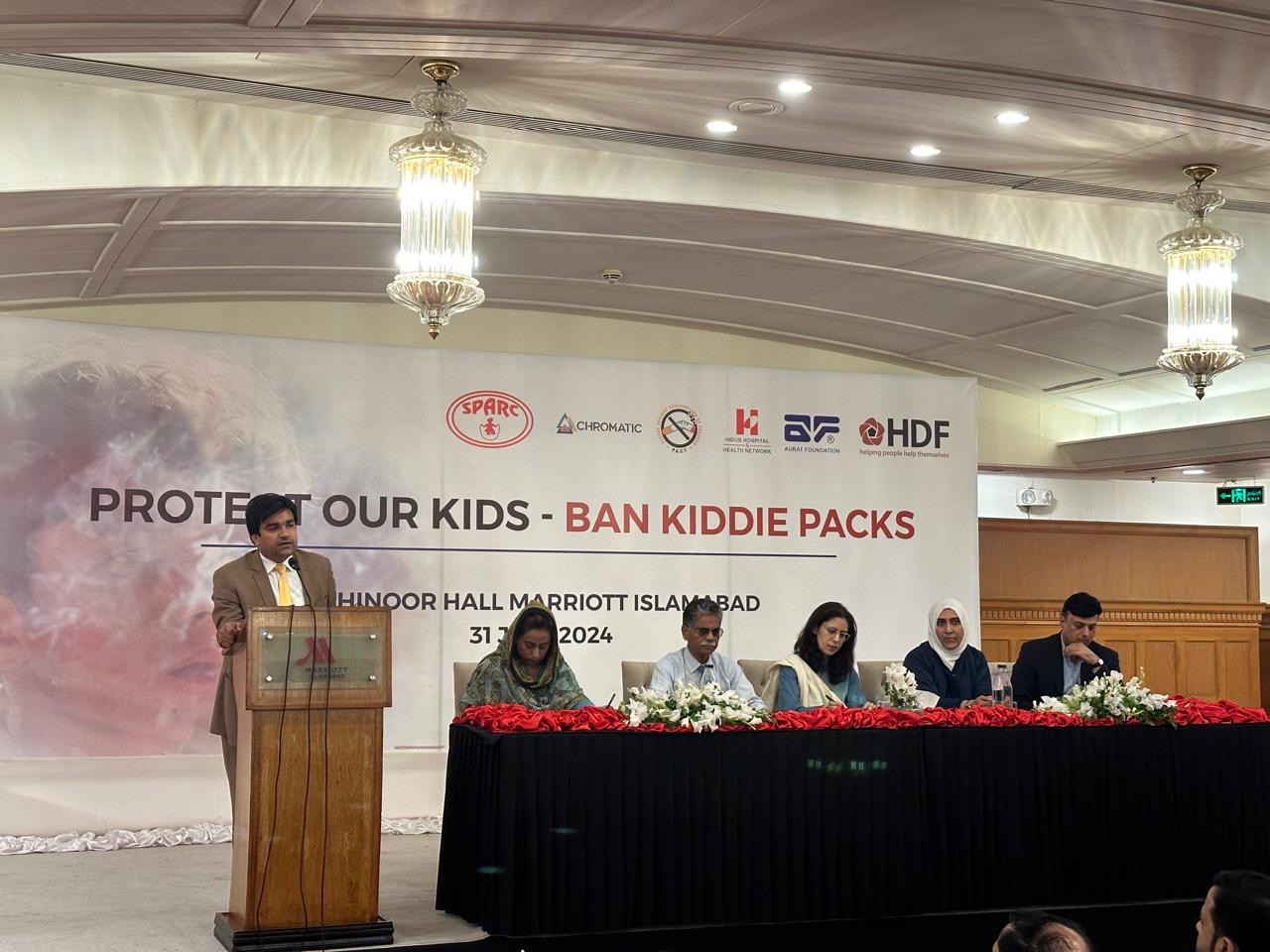OUR CORRESPONDENT
Islamabad: The Society for the Protection of the Rights of the Child (SPARC), together with health activists, has expressed a deep concern over a proposal by Tobacco Industry that seeks to alter Pakistan’s tobacco control regulations. This proposal by tobacco industry aims to allow the manufacture and export of 10-stick cigarette packs, commonly referred to as ‘kiddie packs.’ This move could have far-reaching implications for public health both within Pakistan and in other countries. The negative impact of this proposal on both Pakistani and Sudanese children was described in this way “The introduction of 10-stick cigarette packs, often referred to as ‘kiddie packs,’ poses a serious risk to young people. These smaller, more affordable packs increase the likelihood that children and adolescents will start smoking at an early age, leading to higher addiction rates,”.
Asiya Arif, Executive Director at Society for the Protection of the Rights of the Child (SPARC), stated that Pakistan is already grappling with a severe public health crisis. The economic burden of allowing 10-stick packs could reach up to 50 billion rupees annually. Additionally, there is a significant risk that these packs, although intended for export, could eventually enter the domestic market, undermining Pakistan’s robust tobacco control regulations and exacerbating the public health crisis. Public health advocates in Pakistan and in 25 African countries are asking the government not to amend Pakistan’s strong tobacco control law. Pakistan is a Party to the WHO FCTC, where Article 16.3 provides that “Each Party shall endeavor to prohibit the sale of cigarettes individually or in small packets which increase the affordability of such products to minors.”
Dr. Madiha Siddiqui, Pulmonologist, Indus Hospital and Health Network, emphasized that Pakistani law previously aligned with the WHO FCTC in that it prohibited the manufacture, sale, and import of cigarette packets containing fewer than twenty (20) cigarette sticks. However, allowing the manufacture of “kiddie packs” for export to Sudan, which is also a Party to the Convention, contradicts WHO FCTC obligations, which requires parties to “adopt and implement effective measures and cooperate, as appropriate with other Parties in developing appropriate policies for preventing and reducing tobacco consumption, nicotine addiction and exposure to tobacco smoke” (Article 5.2(b)).Prof. Dr. Matiur Rehman, Professor of Pulmonology said that there is an urgent need for increased public awareness and education on the risks associated with smoking and the tobacco industry’s tactics. By fostering a more informed public, we can build stronger support for tobacco control measures and encourage healthier behaviors among youth.
Dr. Khalil Ahmad Dogar, Program Manager at Society for the Protection of the Rights of the Child (SPARC), added his perspective on the issue. “The tobacco industry’s focus on Pakistan’s youth is evident in their push to introduce 10-stick packs. This strategy is not just about expanding their market but about targeting vulnerable young populations. The government must recognize these tactics and the potential harm they pose to both public health and the economy. Allowing the sale of such packs will increase the number of smokers, elevate health care costs, and ultimately compromise the future well-being of our youth.”
He further added, “For years, Pakistan has successfully implemented regulations banning the sale of single sticks to protect young people from smoking. The recent push by tobacco companies to manufacture 10-stick packs under the guise of export arrangements represents a dangerous threat to public health. These packs are likely to find their way into the local market, jeopardizing the well-being of Pakistani youth and compromising our public health efforts.”













